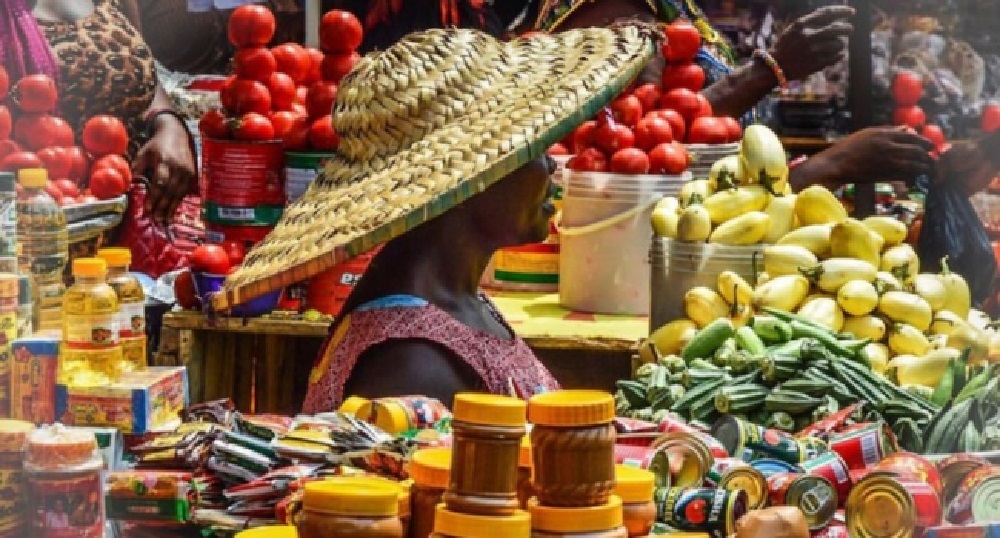News
FCT, Lagos, 25 others to face food crisis – Report

By Francesca Hangeior
A report, Cadre Harmonisé (CH) has revealed that approximately 33.1 million people, including 514,474 internally displaced persons (IDPs) in the Federal Capital Territory (FCT), Lagos and states are projected to experience a food crisis or worse (CH Phase 3) between June and August 2025.
The states identified as being affected include Sokoto, Zamfara, Borno, Adamawa, Yobe, Gombe, Taraba, Katsina, Jigawa, Kano, Bauchi, Plateau, Kaduna, Kebbi, Niger, and Benue.
The report also highlighted that Cross River, Enugu, Edo, Abia, Kogi, Nasarawa, Kwara, Ogun, and Rivers will be affected.
The CH report, a food and nutrition security analysis produced by the Federal Ministry of Agriculture and Food Security with technical support from the United Nations Food and Agriculture Organization (FAO) and other partners, released also noted that about 25 million people, including 422,686 IDPs, are currently in a state of food crisis or worse from October to December 2024.
Regional Breakdown of crisis levels projected that an estimated 1.3 million people are expected to face a food crisis in Adamawa, two million in Borno while approximately 1.6 million people are projected to face critical food shortages mid-2025.
The CH report also highlighted severe malnutrition levels in Northeast and Northwest regions, estimating that nearly 5.44 million children aged 0-59 months are likely to suffer from acute malnutrition from May 2024 to April 2025.
This figure includes 1.8 million cases of Severe Acute Malnutrition (SAM) and 3.7 million cases of Moderate Acute Malnutrition (MAM). Additionally, about 787,000 pregnant and lactating women are expected to need urgent nutrition support.
From May to September 2024, it revealed that more than half of the 133 Local Government Areas (LGAs) analysed were classified as IPC Acute Malnutrition (AMN) Phase 3 or higher. Northeast Nigeria had 10 LGAs in IPC AMN Phase 4 (Critical) and 21 in Phase 3 (Serious), while in Northwest 24 local government areas were classified as critical and 29 as serious.
The report however attributed the malnutrition crisis to factors such as insufficient food quantity and quality, inadequate feeding practices, poor health services, high disease prevalence, and low health-seeking behavior.
It further noted that economic challenges, compounded by food insecurity, limited water, sanitation, and hygiene (WASH) services, and security issues from ongoing conflict and displacement, are exacerbating the crisis.
Key drivers of food and nutrition insecurity, it said, are high cost of food and non-food items, climate shocks, and rising fuel prices which are currently affecting household food consumption and livelihoods.
FAO Nigeria and ECOWAS representative, Tofiq Braimah, stressed that Nigeria is facing “unprecedented times affecting livelihoods and food and nutrition security of vulnerable populations.”
He noted that the CH workshops aim to assess food security data to identify at-risk populations and propose measures to prevent food crises or further escalation.
In his remarks, Permanent Secretary of the Federal Ministry of Agriculture and Fod Security, Temitope Fashedemi noted that with the spike in fuel prices, transportation costs have soared, squeezing farmers profit margins and potentially driving up food prices for consumers.
Fashedemi also noted that these challenges and the daunting insecurity situation which has continued to threaten Nigeria’s food and nutrition security, have led to disruptions in food system (food production, distribution, marketing and even stocking mechanisms), resulting in poor consumption patterns among several households especially, in areas affected by insecurity.
He however pledged government assurance and commitment to upholding and utilising the outcome and recommendations proffered from the workshop in implementing food and nutrition security interventions.
“We also recommend that these results be adopted for planning and implementation of food and nutrition security interventions across the federal MDAs, 26 CH states, the humanitarian community and among allpartners operating in Nigeria.
News
Watch current episode of Your family Lawyer as Chinye breaks down intricacies of bloodlines, DNA tests

Again, Chuma Chinye a seasoned lawyer in last Saturday’s podcast of Your family Lawyer adequately thrashed out intricacies associated with DNA tests and bloodlines in family matters.
WATCH:
News
Protests erupt in Plateau over incessant k!llings

Protests erupted in Jos, the Plateau State capital, on Monday morning over the continued killings of indigenous residents by gunmen suspected to be Fulani militants.
The demonstrations, led by Christian leaders including the state chairman of the Christian Association of Nigeria, Rev. Polycarp Lubo, commenced on Monday morning at the Fawvwei Junction community road, causing a heavy gridlock and stranding commuters.
The latest protest comes amid a surge in violent attacks by gunmen in various communities, with over 100 people killed in Bokkos and Bassa LGAS in the past two weeks.
“We are not happy over the continuous attacks and killings by gunmen in our communities. That’s why we have come out again to protest these happenings,” said Gyang Dalyop, one of the protesters.
Another protester, Hannatu Philip, called on the government to intervene before it spirals out of control.
The protesters brandishing placards with different inscriptions were seen marching towards the Rayfield Government House.
News
Tinubu not your equal – Presidency replies Peter Obi’s ex-running mate, Datti

The Presidency has said the former Labour Party, LP, presidential running mate, Yusuf Datti Baba-Ahmed is no match for President Bola Tinubu.
Tinubu’s Special Adviser on Media and Public Communication, Sunday Dare was reacting to Datti’s remark that he (Tinubu) would not run for the presidency in 2027.
The former LP running mate insisted that Tinubu’s time is up, adding that everything is there for the president and the ruling All Progressives Party, APC, to see that they lose in 2027.
Dismissing such remark, Dare likened Datti’s comment to the new year predictions of charlatan ‘prophets’ which never come through.
In a statement he signed, Dare said the likes of Peter Obi and Datti would have been president left for the latter’s theories.
According to Dare, Datti has chosen to venture into an unfamiliar terrain.
The statement reads partly: “Yusuf Datti Baba-Ahmed’s “illogical logic” was all over the place in his recent interview with a television channel.
“Listening to Yusuf Datti Baba- Ahmed spurn his postulations about the political future of Nigeria and that of the incumbent President is like listening to the new year predictions of charlatan ‘prophets’ which never come through. Yusuf Baba Ahmed and his co-traveller Peter Obi are indeed a “double whammy“ in the Nigerian political space.
“He chose to base his political calculations on President Bola Tinubu not winning a second term given his antecedents and because Nigerians will decide at the polls among other things. He conveniently avoided the substance of performance and capacity.
“Unfortunately, he chose to walk into a lane he was unfamiliar with and chose to confront a politician he is no match for.”
Similarly, the Presidency had also stressed that Tinubu will reveal his plans for a second term at the right time.
It said the APC 2027 presidential campaign billboards had no links to Tinubu and Vice President Kashim Shettima.
-

 News10 hours ago
News10 hours agoBREAKING! Pope Francis is dead
-

 News7 hours ago
News7 hours agoUPDATED: How Pope Francis transited, last activity, health challenges, others
-

 News14 hours ago
News14 hours agoRetirees with outstanding loans may lose property – FG
-

 News24 hours ago
News24 hours agoIsrael’s remote controlled bulldozers breaking ground in Gaza war
-

 News14 hours ago
News14 hours agoSad as hotelier slumps, dies at wife’s 60th birthday thanksgiving
-

 News24 hours ago
News24 hours ago70-hour Chess Marathon: Onakoya reportedly breaks record set by Norwegians
-

 News9 hours ago
News9 hours agoFemi Ojudu: We Understand His Bitterness Being A Political Coupist– Lere Olayinka bombs Ojudu over comment on wike
-

 Metro15 hours ago
Metro15 hours ago77-year-old Nigerian Uber driver shot dead in US, passenger in critical condition






